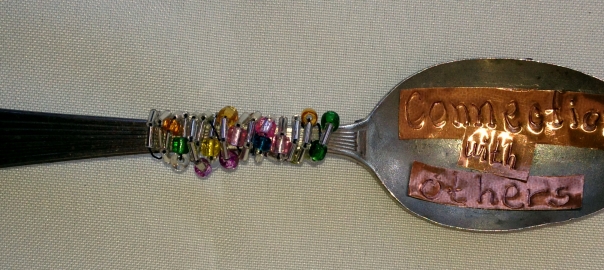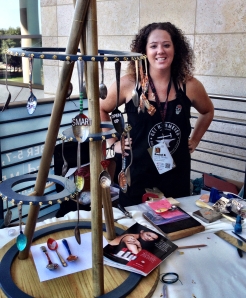I heard a few people talking about spoons on Friday morning at Stanford’s Medicine X conference . They were wondering why artist-in-residence Rachel Stork Stoltz, had asked us all to bring a spoon to the conference? After listening in a bit, I leaned over and tried to answer their questions. The spoon theory was created by Christine Miserandino and is a powerful way of explaining to a healthy person what it feels like to live with a chronic illness. You start the day with a finite amount of energy and as you move through the day you use quanta of energy (spoons) with even the smallest tasks of daily living. You count your spoons and may find you do not have enough spoons (energy) left to do what you want or need to that day because of the demands of your illness.
At its best moments Med X was a masterpiece of collaboration. It was a bringing together of patients, physicians, thought leaders and innovators to work together to discuss the future of medicine. Our recursive efforts mirrored and repeated each others’ in a way that built a powerful basis of understanding to move forward with.
Everyone who is born holds dual citizenship, in the kingdom of the well and in the kingdom of the sick. Although we all prefer to use the good passport, sooner or later each of us is obliged, at least for a spell, to identify ourselves as citizens of that other place.
- How will I recognize the daily efforts of patients in the days of their lives not in my office?
- How will I be as caring as an old-school physician and as vital as a fully connected 2.0 MD.
- How will I allow a space of communication about patient’s emotional challenges (as well as those physical)?
- How will I shape my efforts to motivate health change through social media?



What you wrote was valuable to me in my practice with mental illness, also debilitating of energy. Thanks, Kate, and keep up the good writing!